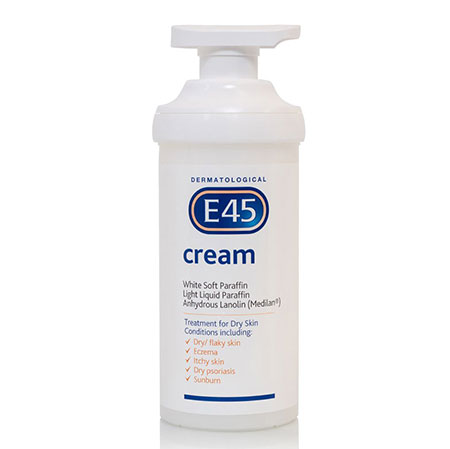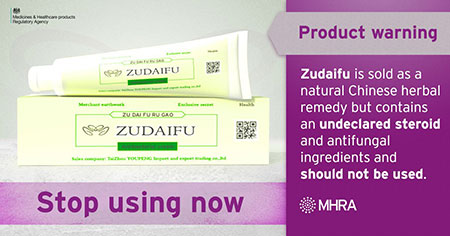Lidocaine-Containing Teething Gels For Babies And Children Reverse-Switched In UK
Executive Summary
The UK’s Medicines and Healthcare products Regulatory Agency (MHRA) has reverse-switched teething gels containing lidocaine for babies and children from general sales list (GSL) to pharmacy-only (P) status, and has issued two new warnings regarding the use of skin-care products to treat skin conditions such as eczema and psoriasis.
The UK’s Medicines and Healthcare products Regulatory Agency (MHRA) has reverse-switched teething gels containing lidocaine for babies and children from general sales list (GSL) to pharmacy-only (P) status after concluding that there was a “lack of evidence” for the benefit of using these products “before non-medicinal options”.
“Teething is a natural process and lidocaine-containing teething products such as teething gels should only be used as a second line of treatment after discussion with and guidance of a healthcare professional,” the MHRA stated. “Pharmacists are best placed to provide guidance and support when babies and children are teething.”
The decision followed an “in-depth review of the benefits and risks” of lidocaine-containing teething products, the MHRA explained, which had been passed to the regulator’s expert committee, the Commission on Human Medicines (CHM), for discussion (See the MHRA's 'UK Public Assessment Report on Oral Lidocaine Products).
Based on a consideration of the finding of the review, the agency reported that the CHM had recommended:
-
The GSL-to-P switch of oral lidocaine-containing products for babies and children;
-
The updating and harmonising of posology and safety warnings across all oral lidocaine products authorised for teething;
-
Restriction of the pack size of oral lidocaine products authorised for teething to a maximum of 10g;
-
Re-positioning of oral lidocaine products as appropriate only after non-pharmacological approaches to teething;
-
An update to oral OTC lidocaine products licensed for other indications to carry a warning against use in teething.
Taking on board these recommendations, the MHRA said it would update instructions for administration and safety warnings in the patient information leaflet for these products and issue advice to parents and caregivers, including an information sheet with “key messages” for parents and caregivers (See the MHRA's Lidocaine Patient Sheet).
However, oral lidocaine products that were approved for adults or for other conditions such as mouth ulcers would remain GSL, the MHRA noted, but “should not be used in infants for teething because they have different approved dosing regimens”.
Commenting on the decision, the president of the Royal Pharmaceutical Society, Ash Soni, said it was “natural” for parents to be concerned if their baby was “experiencing discomfort with sore gums when teething”.
Nevertheless, pharmacists were “always a good first port of call” for common conditions affecting children, Soni argued, as they were able to “provide parents and caregivers of teething babies with expert advice and recommend the best course of treatment”.
Skin-care product warnings issued
Meanwhile, the MHRA has also issued two new warnings regarding the use of skin-care products to treat skin conditions such as eczema and psoriasis.
Firstly, the agency has warned of the potential fire hazard of build-ups of emollient cream residue on fabrics.
Following an “extensive review of the available evidence” – which revealed a potential fire risk with emollients containing levels of paraffin lower than 50%, including paraffin-free emollients – the MHRA’s CHM recommended that:
-
The outer packaging and product containers of emollient products should include a fire hazard warning, accompanied by “short explanatory text and a picture warning in the most prominent field of view”;
-
Where available, the patient information leaflet for these products should be “updated to include warnings about the risk and how best to minimise it”.
While the likelihood of emollient-stained fabrics catching fire was “low”, the MHRA pointed out that “if this does occur it could cause severe burns which may result in death”.
“We want users to be aware that fabrics which have come into contact with an emollient can be highly flammable, even after washing,” the agency insisted. “It is important that people prescribing, dispensing or using any emollient, or caring for someone who uses an emollient, are aware of the potential fire risks and take appropriate action to reduce it.”

The MHRA said it was working together with industry to apply the CHM recommendations and “develop suitable ways to make sure the warning is appropriately prominent”.
John Smith, chief executive officer of the Proprietary Association of Great Britain (PAGB), insisted that consumer safety was of “paramount importance to the consumer healthcare industry” and that PAGB member companies were “committed to adding a clear warning statement to the packaging of emollient products”.
“We have been working with MHRA during its review of the evidence to ensure that the warning is implemented consistently across industry and to support efforts to raise awareness of this issue,” Smith noted.
“Emollient products are an important and effective treatment for chronic and often severe dry-skin conditions, such as eczema and psoriasis,” he continued. “People should continue to use these products, but it is vital they understand the fire risk associated with a build-up of residue on fabric and take steps to mitigate that risk.”
Secondly, the MHRA has issued a warning that the skin-care product Zudaifu – which it described as a “skin cream claiming to be a ‘natural’ Chinese herbal remedy – should not be used as it had been found to contain the “potentially harmful steroid” clobetasol propionate, a substance present in prescription-only medicinal treatments for skin conditions such as psoriasis and eczema.

